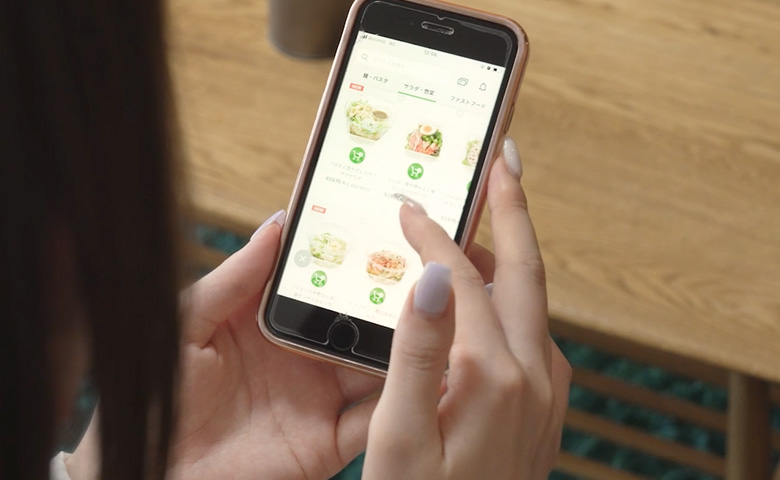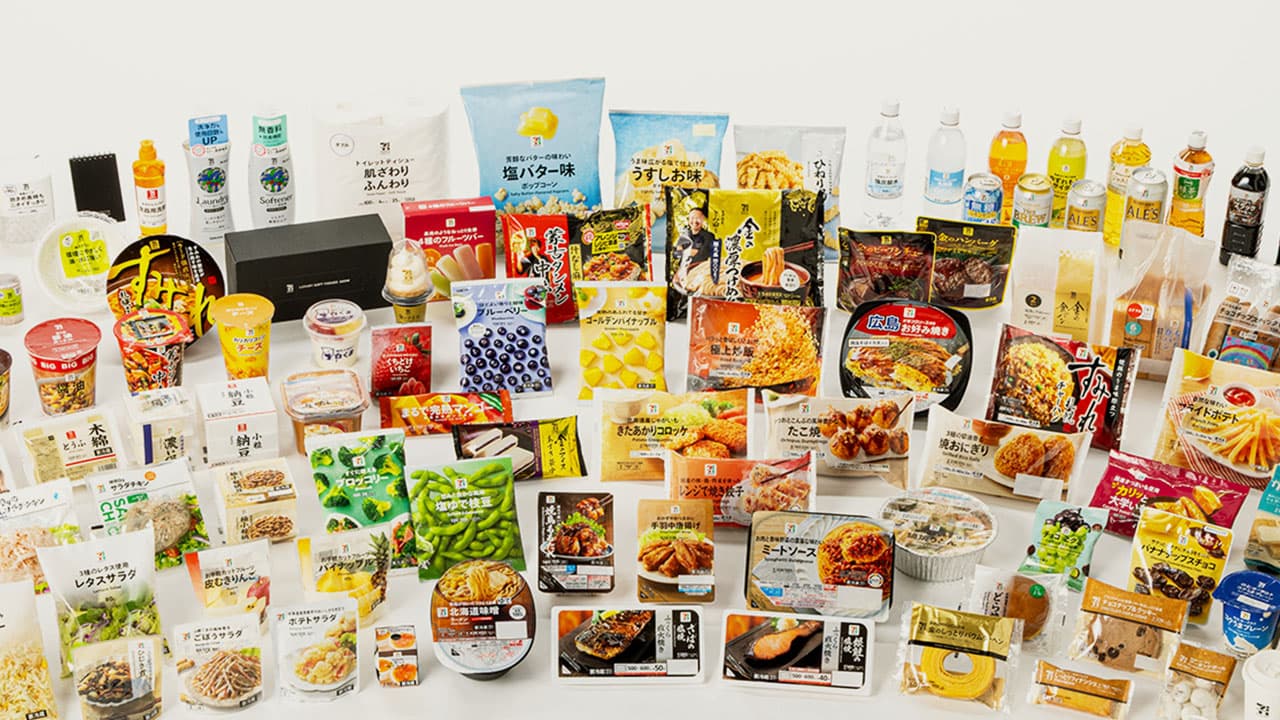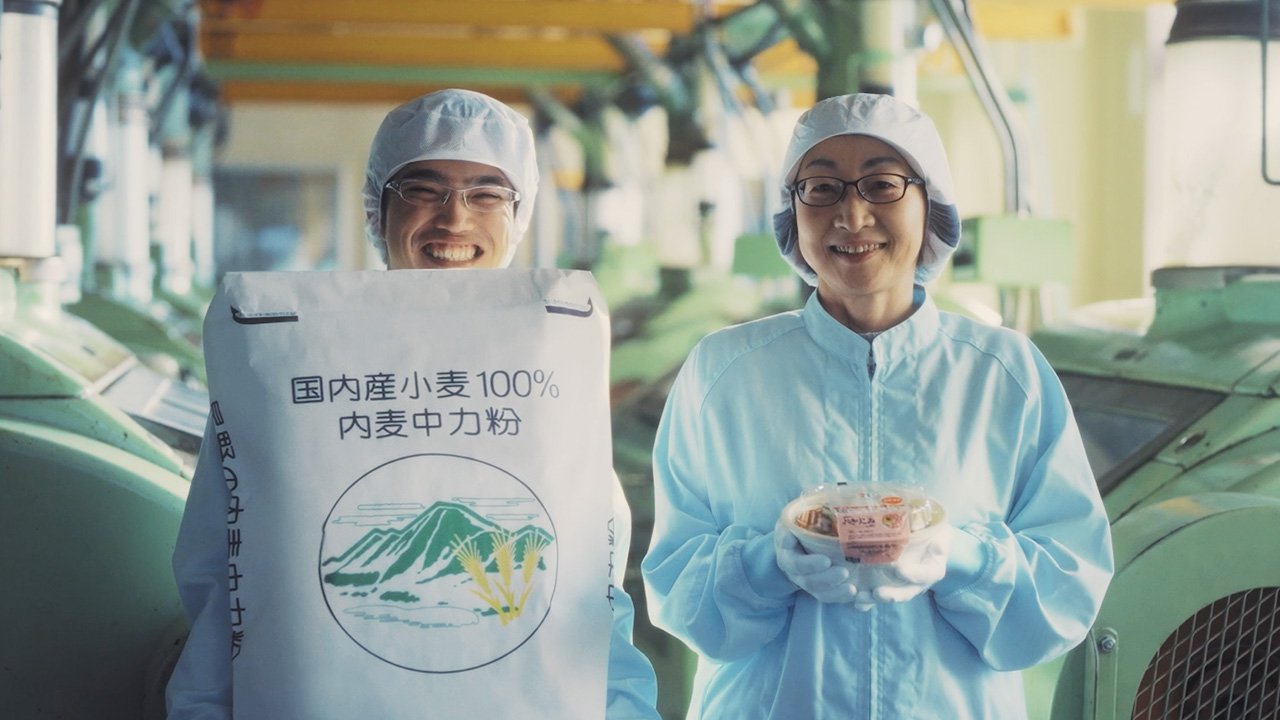Table of contents
Serving as the Trusted Local Lifestyle and Social Infrastructure
At SEJ, we strive to create convenient and accessible stores where customers can easily find various products they need from morning to night, including food and daily necessities like toothbrushes and detergents. We apply the same concept to our services, leveraging our network of roughly 21,700 stores nationwide (as of the end of September 2025) to enrich customers’ lives.
“Meeting societal needs is the very purpose of 7-Eleven and the foundation of our role as a 'lifestyle and social infrastructure,'” says Okajima. In the late 1980s, Japanese lifestyles became increasingly diverse due to later working hours and greater participation of women in the workforce. To help customers who could not easily visit bank counters during the day, SEJ launched a bill payment service in 1987.
Over 40% of consumer payments are now cashless in Japan*, but ATMs were essential for everyday life in the past when the cash usage rate was much higher. In 2001, SEJ established the predecessor of Seven Bank to allow cash transactions at any time in select 7-Eleven stores. Our ATMs have since evolved to include a 12-language interface, international remittances received in a matter of minutes, voice guidance for the visually impaired, and a universal design accessible to seniors and wheelchair users.
*Source: 2024 Ratio of Cashless Payment Among the Total Amount Paid by Consumers Calculated, Ministry of Economy, Trade and Industry
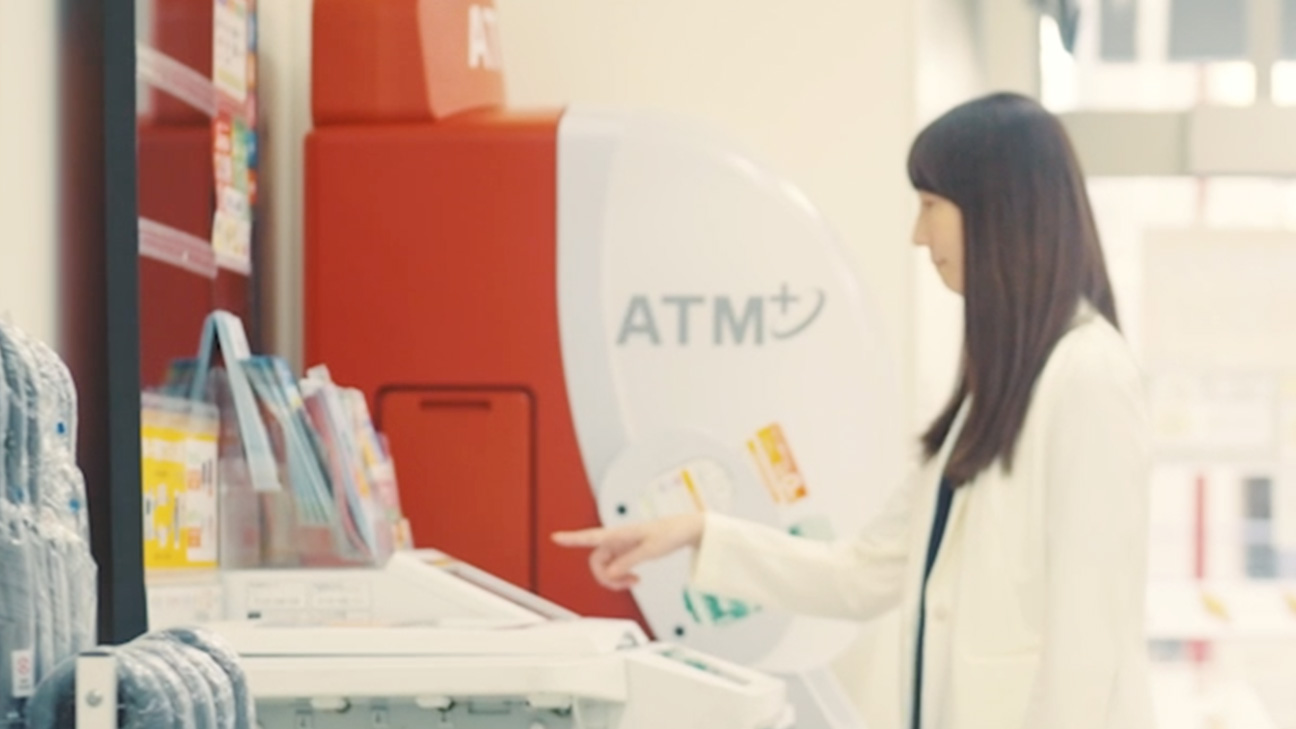
Transforming Japanese Lifestyles with Consistent Service Nationwide
New SEJ services usually stem from customer or government needs. Services born from customer needs include the bill payment and ATM services described above, as well as 7NOW, which delivers daily necessities to busy remote workers and customers with mobility challenges. Orders placed through a dedicated smartphone app can arrive at designated locations in as little as 20 minutes.
Services born from government needs include the issuance of official certificates. Paper-based processes remain common in Japan, and many official procedures still require physical copies of important documents. To improve efficiency at government offices in light of Japan’s shrinking workforce, SEJ began offering administrative services in partnership with three municipalities in 2010. Customers can obtain copies of their residence certificates and other official documents directly from multifunction copiers at 7-Eleven without visiting government offices. Currently, SEJ partners with over 1,300 municipalities (as of February 2025) and is expanding services nationwide. By listening to feedback from both government agencies and customers, we have built a system that truly meets societal needs.
“We are pushing forward with the introduction of various services to improve Japanese lifestyles and ensure consistency in service quality wherever our customers visit,” Okajima emphasizes. For example, the bill payment service originally required manual data entry, but SEJ consolidated the necessary information into a barcode that can simply be scanned at the register. This allows anyone, including the increasing number of foreigners living in Japan, to complete transactions quickly and easily. Recognizing the broader social value of such features, SEJ opened its bill payment and administrative service systems to competitors to further expand access.
In this era of VUCA (volatility, uncertainty, complexity, and ambiguity), we take an agile, flexible approach to developing services. One example is our pilot project addressing the shortage of coin lockers by providing luggage storage services for foreign tourists at about 10 stores. If pilot results are favorable, we may enhance the services and expand them to more stores.
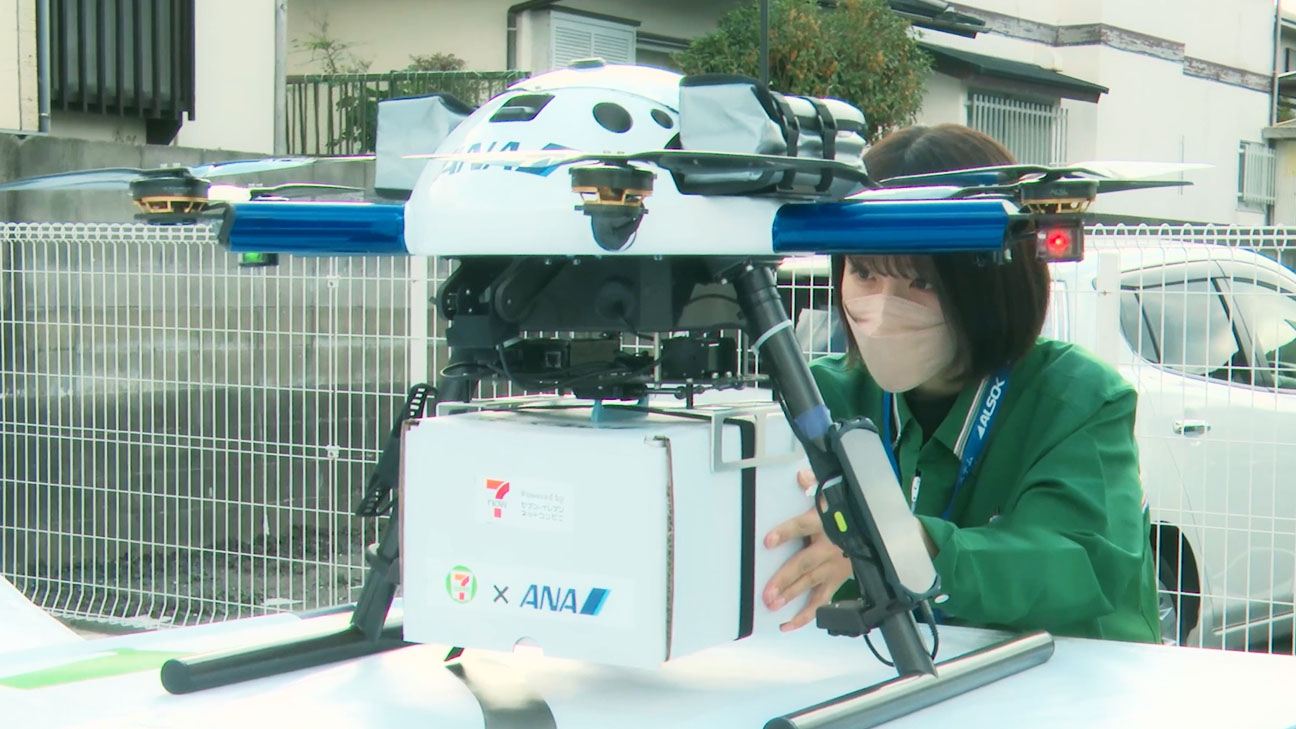
Demonstration of a proof-of-concept experiment using drones to deliver 7NOW products
Embracing Local Perspectives Everywhere to Meet Global Needs
The demand for socially beneficial services at Japanese convenience stores arises from unique changes in Japanese society, such as an aging population and increased female workforce participation. From the customer’s perspective, the 7-Eleven brand should be the same everywhere in the world. “Because local business practices, policies, and culture strongly influence customers, we recognize the need to identify the challenges in each country and region and to develop services that address them,” Okajima notes. “It's crucial to gather accurate, first-hand information and anticipate needs.”
We want customers everywhere in the world to think of 7-Eleven as a brand that provides convenient and innovative services from their perspective, and we will continue evolving to achieve that.
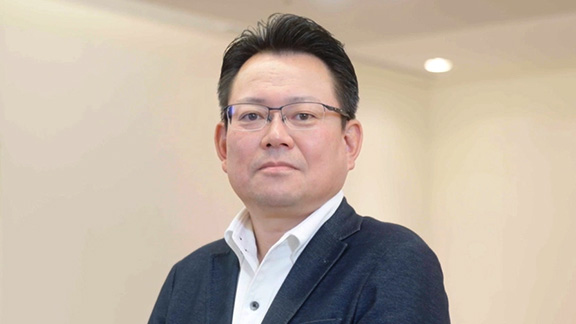
Noriyuki Okajima
Executive Officer,
Head of Marketing Division
SEVEN-ELEVEN JAPAN CO., LTD.
Noriyuki Okajima
*Titles as of August 2025
* This article is based on data as of June 18, 2025.


